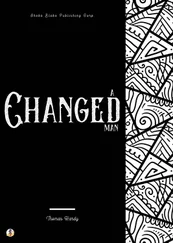Sheba Blake - Anarchism
Здесь есть возможность читать онлайн «Sheba Blake - Anarchism» — ознакомительный отрывок электронной книги совершенно бесплатно, а после прочтения отрывка купить полную версию. В некоторых случаях можно слушать аудио, скачать через торрент в формате fb2 и присутствует краткое содержание. Жанр: unrecognised, на английском языке. Описание произведения, (предисловие) а так же отзывы посетителей доступны на портале библиотеки ЛибКат.
- Название:Anarchism
- Автор:
- Жанр:
- Год:неизвестен
- ISBN:нет данных
- Рейтинг книги:4 / 5. Голосов: 1
-
Избранное:Добавить в избранное
- Отзывы:
-
Ваша оценка:
- 80
- 1
- 2
- 3
- 4
- 5
Anarchism: краткое содержание, описание и аннотация
Предлагаем к чтению аннотацию, описание, краткое содержание или предисловие (зависит от того, что написал сам автор книги «Anarchism»). Если вы не нашли необходимую информацию о книге — напишите в комментариях, мы постараемся отыскать её.
Anarchism — читать онлайн ознакомительный отрывок
Ниже представлен текст книги, разбитый по страницам. Система сохранения места последней прочитанной страницы, позволяет с удобством читать онлайн бесплатно книгу «Anarchism», без необходимости каждый раз заново искать на чём Вы остановились. Поставьте закладку, и сможете в любой момент перейти на страницу, на которой закончили чтение.
Интервал:
Закладка:
[2] Rupticism, Pietism, and Anti-Semitism at the Close of the Nineteenth Century , a study in social history. Vienna, 1894.
And that is what Anarchism undoubtedly is: a theory, an idea, with all the failings and dangers, but also with all the advantages which a theory always possesses, with just as much, and only as much, validity as a theory can demand as its due, but at any rate a theory which is as old as human civilisation, because it goes back to the most powerful civilising factor in humanity.
* * *
The care for the bare necessities of life, the inexorable struggle for existence, has aroused in mankind the desire for fellow-strugglers, for companions. In the tribe his power of resistance was increased, and his prospect of self-support grew in proportion as he developed together with his fellows into a new collective existence. But the fact that, notwithstanding this, he did not grow up like a mere animal in a flock, but in such a way that he always—even if often only after long and bitter experience—found his proper development in the tribe—this has made him a man and his tribe a society. Which is the more ancient and more sacred, the unfettered rights of the individual or the welfare of the community? Can anyone take this question seriously who is accustomed to look at the life and development of society in the light of facts? Individualism and Altruism are as inseparably connected as light and darkness, as day and night. The individualistic and the social sense in human society correspond to the centrifugal and centripetal forces in the universe, or to the forces of attraction and repulsion that govern molecular activity. Their movements must be regarded simply as manifestations of forces in the direction of the resultants, whose components are Individualism and Altruism. If, to use a metaphor from physics, one of these forces was excluded, the body would either remain stock-still, or would fly far away into infinity. But such a case is, in society as in physics, only possible in imagination, because the distinction between the two forces is itself only a purely mental separation of one and the same thing.
This is all that can be said either for or against the exclusive accentuation of any one single social force. All the endeavours to create a realm of unlimited and absolute freedom have only as much value as the assumption, in physics, of space absolutely void of air, or of a direction of motion absolutely uninfluenced by the force of gravity. The force which sets a bullet in motion is certainly something actual and real; but the influence which would correspond to this force, this direction in the sense in which the physicist distinguishes it, exists only in theory, because the bullet will, as far as all actual experience goes, only move in the direction of a resultant, in which the impetus given to it and the force of gravity are inseparably united and appear as one. If, therefore, it is also clear that the endeavour to obtain a realm of unconditional freedom contradicts ipso facto the conception of life, yet all such endeavours are by no means valueless for our knowledge of human society, and consequently for society itself; and even if social life is always only the resultant of different forces, yet these forces themselves remain something real and actual, and are no mere fiction or hypothesis; while the growing differentiation of society shows how freedom, conceived as a force, is something actual, although as an ideal it may never attain full realisation. The development of society has proceeded hand in hand with a conscious or more often unconscious assertion of the individual, and the philosopher Hegel could rightly say that the history of the world is progress in the consciousness of freedom. At all events, it might be added, the statement that the history of the world is progress in the consciousness of the universal interdependence of mankind would have quite as much justification, and practically also just the same meaning.
The circumstance that, apart from the events of what is comparatively a modern period, the great social upheavals of history have not taken place expressly in the name of freedom, although they have indisputably implied it, only proves that in this case we have to deal not with a mere word or idea, but with an actual force which is active and acting, without reference to our knowledge or consciousness of it. The recognition of individual freedom, and much more the endeavour to make it the only object of our life, are certainly of quite recent date. But these presuppose a certain amount of progress in the actual process of setting the individual free in his moral and political relationships, which is not to be found in the whole of antiquity, and still less in the middle ages.
* * *
It is not possible to point to clearer traces of Anarchist influences in the numberless social religious revolutions of the close of the middle ages, without doing violence to history, although, as in all critical periods, even in that of the Reformation,—which certainly implied a serious revolt against authority,—there was no lack of isolated attempts to make the revolt against authority universal, and to abolish authority of every kind. We find, for instance, in the thirteenth century, a degenerate sect of the “Beghards,” who called themselves “Brothers and Sisters of the Free Spirit,” or were also called “Amalrikites,” after the name of their founder.[3] They preached not only community of goods but also of women, a perfect equality, and rejected every form of authority. Their Anarchist doctrines were, curiously enough, a consequence of their Pantheism. Since God is everything and everywhere, even in mankind, it follows that the will of man is also the will of God; therefore every limitation of man is objectionable, and every person has the right, indeed it is his duty, to obey his impulses. These views are said to have spread fairly widely over the east of France and part of Germany, and especially among the Beghards on the Rhine.[4] The “Brothers and Sisters of the Free Spirit” also appear during the Hussite wars under the name of “Adamites”; this name being given them because they declared the condition of Adam to be that of sinless innocence. Their enthusiasm for this happy state of nature went so far that they appeared in their assemblies, called “Paradises,” literally in Adamite costume, that is, quite naked.
[3] Amalrich of Bena, near Chartres, was, about 1200 A.D., a professor of theology at Paris. He had to defend himself before Pope Innocent III. on a charge of pantheistic teaching, and then recanted. His follower, David of Dinant, however, continued his work after his master’s death (in 1206 or 1207), and this caused a condemnation of Amalrich’s teaching by the Synod of Paris in 1210, and by the Lateran Council in 1215, and also led to a severe persecution of the Amalrikites.
[4] E. Bernstein and K. Kautsky, Die Vorläufer des Neueren Socialismus , Stuttgart, 1895. Part i., pp. 169 and 216.
But that, in spite of all this, the real Communism of this sect went no farther than a kind of patriarchal Republicanism, certainly not as far as actual Anarchy, is proved by the information given by Æneas Sylvius: that they certainly had community of women, but that it was nevertheless forbidden to them to have knowledge of any woman without the permission of their leader.
There is one other sect met with during the Hussite wars in Bohemia, which bears some similarity to the Anarchical Communism of the present day, that of the Chelcicians.[5] Peter of Chelcic, a peaceful Taborite, preached equality and Communism; but this universal equality should not (he said) be imposed upon society by the compulsion of the State, but should be realised without its intervention. The State is sinful, and an outcome of the Evil One, since it has created the inequality of property, rank, and place. Therefore the State must disappear; and the means of doing away with it consists not in making war upon it, but in simply ignoring it. The true follower of this theory is thus neither allowed to take any office under the State nor call in its help; for the true Christian strives after good of his own accord, and must not compel us to follow it, since God desires good to be done voluntarily. All compulsion is from the Evil One; all dignities or distinctions of classes offend against the law of brotherly love and equality. This pious enthusiast easily found a small body of followers in a time when men were weary of war after the cruelties of the Hussite conflicts; but here, too, his theory developed in practice into a kind of Quietism under priestly control, an austere Puritanism, which is the very opposite of the personal freedom of Anarchism.
Читать дальшеИнтервал:
Закладка:
Похожие книги на «Anarchism»
Представляем Вашему вниманию похожие книги на «Anarchism» списком для выбора. Мы отобрали схожую по названию и смыслу литературу в надежде предоставить читателям больше вариантов отыскать новые, интересные, ещё непрочитанные произведения.
Обсуждение, отзывы о книге «Anarchism» и просто собственные мнения читателей. Оставьте ваши комментарии, напишите, что Вы думаете о произведении, его смысле или главных героях. Укажите что конкретно понравилось, а что нет, и почему Вы так считаете.












